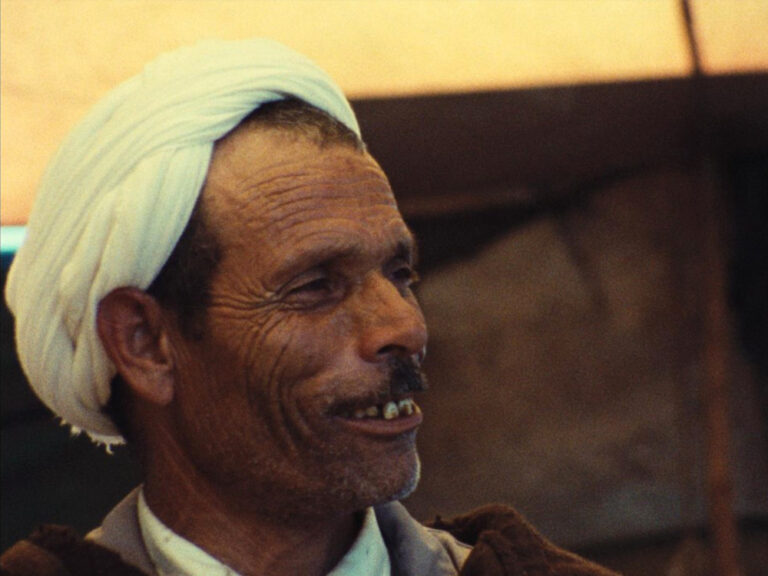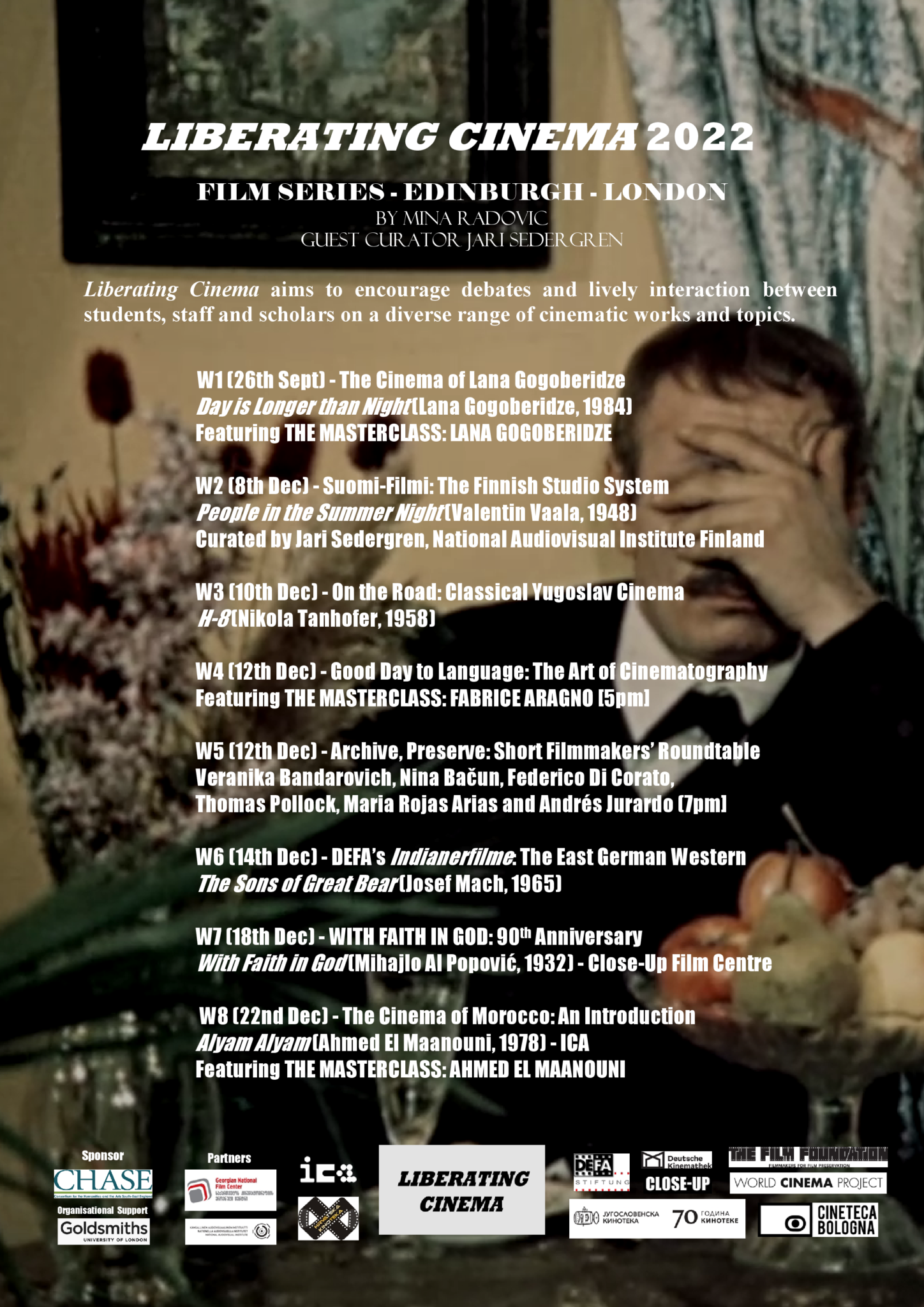Liberating Cinema Film Series 2022
By Mina Radovic
Guest Curator Jari Sedergren
Liberating Cinema is honoured to launch The Liberating Cinema Film Series Programme 2022, inviting you to join our most comprehensive, exciting, and collaborative edition to date. Experience masterpieces from the archives, discover key pioneers for the first time, and participate in reframing our understandings of cinema as we dig in through the vaults of film history. Join us on our journey as we uncover precious gems from Suomi-Filmi: The Finnish Studio System to Post-War Yugoslav Cinema, East German Westerns to the Cinema of Morocco. Learn about the art of cinematography first-hand from Swiss filmmaker Fabrice Aragno, pioneer of 3D technology and the cinematographer of the late films of Jean-Luc Godard, share experiences with our Guest Curator Jari Sedergren (National Audiovisual Institute Finland), and if being online becomes simply too much, then join us in person and meet celebrated auteur Ahmed El Maanouni as he holds our Masterclass in Directing in London.
Liberating Cinema is honoured to host in London WITH FAITH IN GOD: 90th Anniversary Screening of The Greatest Yugoslav Silent Film at the Close-Up Film Centre on 18 December, courtesy of Jugoslovenska Kinoteka, Belgrade, and MASTERCLASS: AHMED EL MAANOUNI, accompanied by a screening of the restoration of his masterpiece Alyam Alyam, at the Institute for Contemporary Arts on 22 December, courtesy of The Film Foundation’s World Cinema Project and Cineteca Bologna.
Complementing our mission to represent classics of world cinema, this year’s programme is also special as we turn to look at the future of film: Liberating Cinema will host a Filmmakers’ Roundtable under the title Archive, Preserve!, introducing key emerging artists from Britain, Colombia, Croatia, Italy, and Belarus who present new and authentic ways of engaging with cultural heritage.
The Film Series comprises week-long film screenings, a Panel Talk and Q&A (8-23 December) and is accompanied by three principal masterclasses featuring Lana Gogoberidze, Fabrice Aragno and Ahmed El Maanouni. We resume in publishing original essays on the films from our programme by world-leading film scholars, curators, and archivists. Our essays aim to present the community with first-time studies of these important works in the English language.
Liberating Cinema would like to thank the sponsorship support of The Consortium for the Humanities and the Arts South-East England (CHASE), Arts and Humanities Research Council Council UK, and the organisational support of Goldsmiths, University of London in realising this programme. Furthermore, we would like to extend our deepest gratitude to our institutional partners and their staff for their generous support of our Film Series: Georgian National Film Center (Tbilisi), National Audiovisual Institute Finland (Helsinki), Hrvatski Filmski Arhiv (Hrvatska Kinoteka)/Croatian Film Archive (Croatian Cinematheque) (Zagreb), Deutsche Kinemathek and DEFA Stiftung (Berlin), Jugoslovenska Kinoteka/Yugoslav Cinematheque (Belgrade), The Film Foundation (New York/Los Angeles) and Cineteca Bologna (Bologna).
Our Film Series is educational and free of charge, with the aim of facilitating dialogue between academia, archives, and the film industry and engaging them on a wide range of cinematic works and topics with our audiences across the UK and internationally.
*PLEASE NOTE DESCRIPTIONS, FILMS, ESSAYS, AND ZOOM LINKS WILL BE MADE AVAILABLE THROUGHOUT THE PROGRAMME*
W1 (28th September) – The Cinema of Lana Gogoberidze
Day is Longer than Night (Lana Gogoberidze, 1984)
Featuring THE MASTERCLASS: LANA GOGOBERIDZE (12PM)
Representation
The film is made available with courtesy of our partner Georgian National Film Center, Tbilisi.
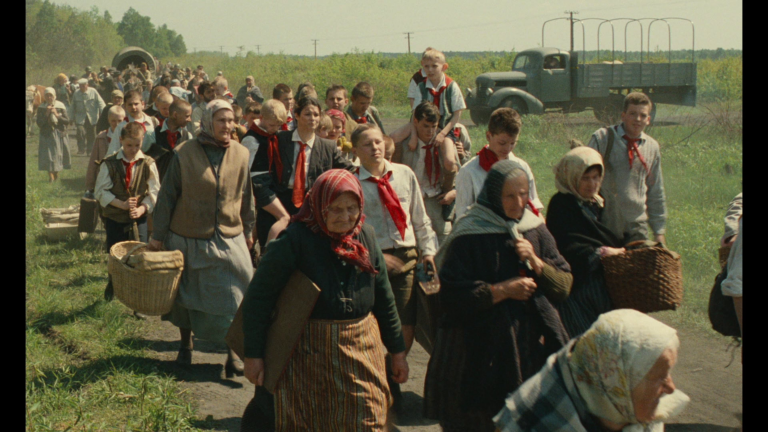
W2 (8th December) – Suomi-Filmi: The Finnish Studio System, Specially Curated Programme by Jari Sedergren
People in the Summer Night (Valentin Vaala, 1948)
In Conversation with film historian and specialist on Finnish cinema Jari Sedergren (KAVI, Helsinki)
Director Valentin Vaala wanted to create a film about a single summer night, during which destinies of several individuals are tied up while nature continues its steady cycle. Fields, lakes and forests are shot with the poetic vision of cinematographer Eino Heino, and the mysticism of nature that was the essence of Sillanpää’s prose is successfully captured on film, resulting in the unity of man with nature in an almost religious experience.
Vaala was not the only Finnish director to be intrigued by Sillanpää’s prose and the writer’s narration was generally regarded as cinematic. His themes flow freely in space and time and he shifts effortlessly from public to private, from long shot to close-up and from universality to microcosm. His character depictions are usually strong, his dramatic climaxes are few but even more effective and most importantly, his narration is firmly rooted in Finnish nature (KAVI, Helsinki).
Topic: Liberating Cinema Film Series 2022 W2: Suomi-Filmi: The Finnish Studio System
Time: Dec 8, 2022 07:00 PM London
Join Zoom Meeting
https://us06web.zoom.us/j/81869938583?pwd=Z0l3a0Y3V3RlRVlXNmJqNGVlT2FPUT09
Meeting ID: 818 6993 8583
Passcode: 194885
The film is made available with courtesy of our partner National Audiovisual Institute Finland, Helsinki.
Watch film at: https://elonet.finna.fi/Record/kavi.elonet_elokuva_122342
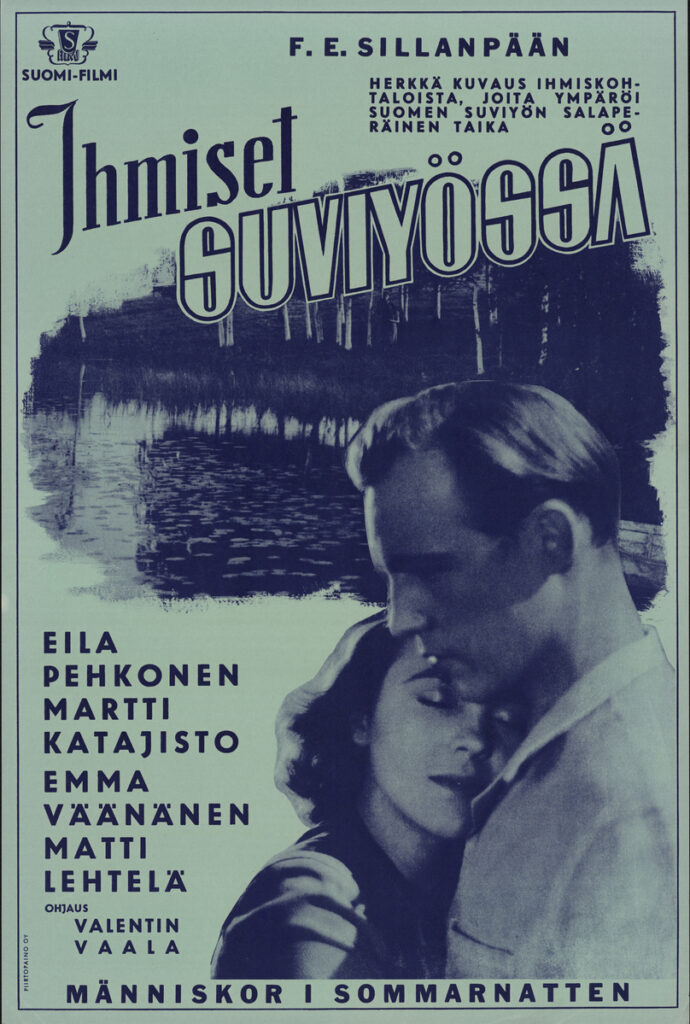
W3 (10th December) – On the Road: Post-War Yugoslav Cinema
H-8 (Nikola Tanhofer, 1958)
In Conversation with film archivist Juraj Kukoč (Croatian Film Archive (Croatian Cinematheque), Zagreb)
H-8 is based on true events, a traffic accident in which a driver of a car caused the collision of a passenger bus with a truck, afterwards fleeing the scene. Retracing the steps, the film follows a series of characters who board an evening bus from Zagreb to Belgrade. As they travel through the night, we come to know the lives of people with whom we grow intimate, and who yet know little of impending disaster associated with the registration plate H-8…
Shot in brilliant noir style, capturing a road journey with sharp accuracy and wondrous expectation, featuring a tapestry of characters and dramaturgy, H-8 is one of the all-time great Yugoslav films and Nikola Tanhofer is a director whose work is ripe for rediscovery. Winner of the Golden Arena at Yugoslavia’s prestige Pula Film Festival and voted the greatest Croatian fiction feature film in 2020, Liberating Cinema is delighted to present the 2K Restoration of this Great Film.
Topic: Liberating Cinema Film Series W3: On the Road: Post-War Yugoslav Cinema
Time: Dec 10, 2022 07:00 PM London
Join Zoom Meeting
https://us06web.zoom.us/j/82909892967?pwd=ZHREUWN2L0ZqWlFYREVvSENYaGV5UT09
Meeting ID: 829 0989 2967
Passcode: 708842
The film is made available with courtesy of our partner Croatian Film Archive/Croatian Cinematheque, Zagreb.
To watch the film RSVP with the subject ‘RSVP H8’ using the Contact Us box on our Home Page.
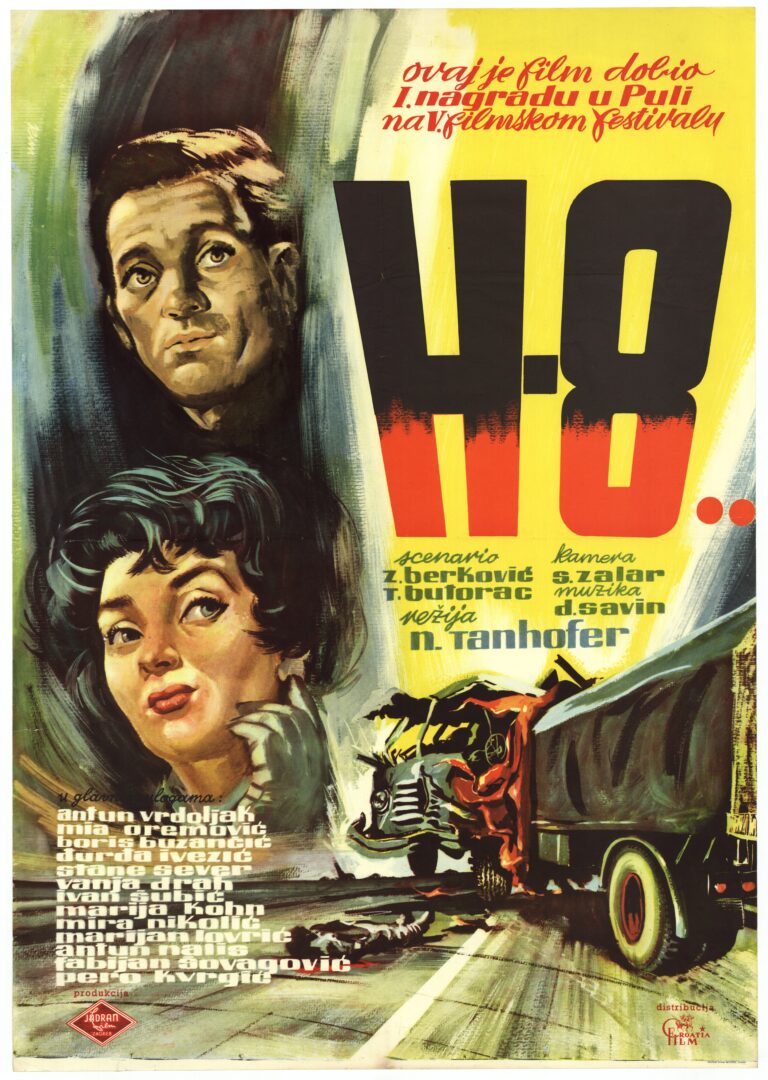
W4 (12th December, 5pm) – Good Day to Language: The Art of Cinematography
Featuring THE MASTERCLASS: FABRICE ARAGNO
Representation
Topic: MASTERCLASS: FABRICE ARAGNO (The Art of Cinematography)
Time: Dec 12, 2022 05:00 PM London
Join Zoom Meeting
https://us06web.zoom.us/j/87670592050?pwd=VHU4Q2N0STV0VW9CakNLZnlobHJLUT09
Meeting ID: 876 7059 2050
Passcode: 193025
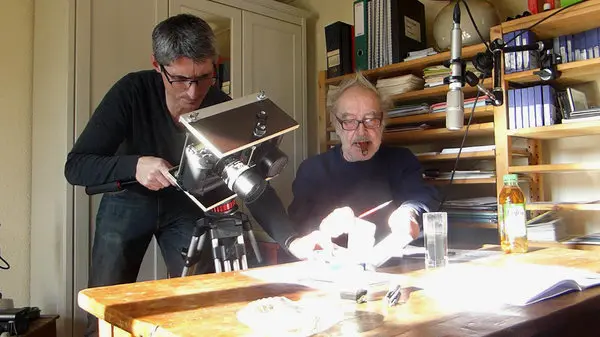
W5 (12th December, 7pm) – Archive, Preserve! Short Filmmakers’ Roundtable
In Conversation with Veranika Bandarovich, Nina Bačun, Federico Di Corato, Thomas Pollock, Maria Rojas Arias and Andrés Jurardo
Looking to the future of film: Liberating Cinema introduces key emerging artists who present new and authentic ways of engaging with cultural heritage in the Filmmakers’ Roundtable Archive, Preserve! The artists come from Britain, Colombia, Croatia, Italy, and Belarus and show us how to deal with our past and live more meaningfully in the present, whether it is through the history of fascism or Colombian revolutionary movements, poetic renegotiation of the New Yugoslav Film heritage or simply facing up to human passions through the aesthetics of the crime film or virtues through a personal documentary mode. Experience the films and meet the filmmakers with us.
May Bee (Veranika Bandarovich, 2020)
“Is this the end? Will Dr. Maybee enter a hospital ever again?”. During the coronavirus pandemic in the time of social distancing afflicted children are all alone with their illnesses. They are in need of magical visits from clown doctors like Dr. Maybee more than ever. Through the unique perspective of a hospital clown, this film explores the essence of and the desire for human connection, reminding us of its transformational power.
Bonding Humanity (Perhaps Manifesto) (Nina Bačun, 2021)
“Bonding Humanity (Perhaps Manifesto)” is created by deliberately rearranging, reorganising and juxtaposing fragments from New Yugoslav Film* (“Yugoslav Black Wave”) and its cinematic heritage related to the interplay between collective spaces and their uses. Personal, social and political contexts intersect into a dialogic narrative form that advances possibilities for new interpretations. The voiceover manifesto is manoeuvred to evoke personal trajectories and collective memories. By involving the essay film as a tool for creative exploring, one is able to discover and question the borders of an uncertain past, present and future. Having in mind that it’s subject – a patchwork of decontextualised memories – be they artificial or authentic, personal or historical, is something to be nursed.
A Companion for Amateur Cinematographers: Vol. I (Federico Di Corato, 2022)
Set against the backdrop of Italy in the years of the fascist dictatorship, a man of means, yet unknown to history, scrutinises the world through his small cine camera. Guiding him and teaching him is a manual; the buds of ideology are detectable beneath the seemingly impartial tone it uses to describe technique. But in his films, the ineffable signs of resistance still rise to the surface.
Valentine’s Night (Thomas Pollock, 2020)
Two undercover DEA agents meet with their kingpin target and a surprise dinner guest in Northern Irish answer to American crime noir.
Abrir Monte/Open Mountain (Maria Rojas Arias, 2021)
On July 19, 1929, in a town in Colombia, a group of shoemakers fought to improve living and working conditions in the country. They called themselves The Bolsheviks of Líbano Tolima. Their revolution lasted only one day, and its traces were almost completely lost. The women of this village share with Aura, an anarchist grandmother, a feeling that their rebellion is still going on.
El Renacer del Carare/The Rebirth of Carare (Andrés Jurardo, 2020)
This film takes up a forgotten slideshow technical script made by a peasants association and gives life to it through a 16mm film, music, and words, as a recomposition and extension of the resistance against violence through historical memory.
Topic: Liberating Cinema Archive, Preserve! Short Filmmakers’ Roundtable: Veranika Bandarovich, Nina Bačun, Federico Di Corato, Thomas Pollock, Maria Rojas Arias and Andrés Jurardo
Time: Dec 12, 2022 07:00 PM London
Join Zoom Meeting
https://us06web.zoom.us/j/81393361542?pwd=RkFYeVNuQjBTT0IyUlFoM01RaXdIQT09
Meeting ID: 813 9336 1542
Passcode: 822968
To watch the films RSVP May Bee, Humanity, Manual, Monte, Carare through the Contact Us box on our Home Page (depending on which film(s) you prefer to see).
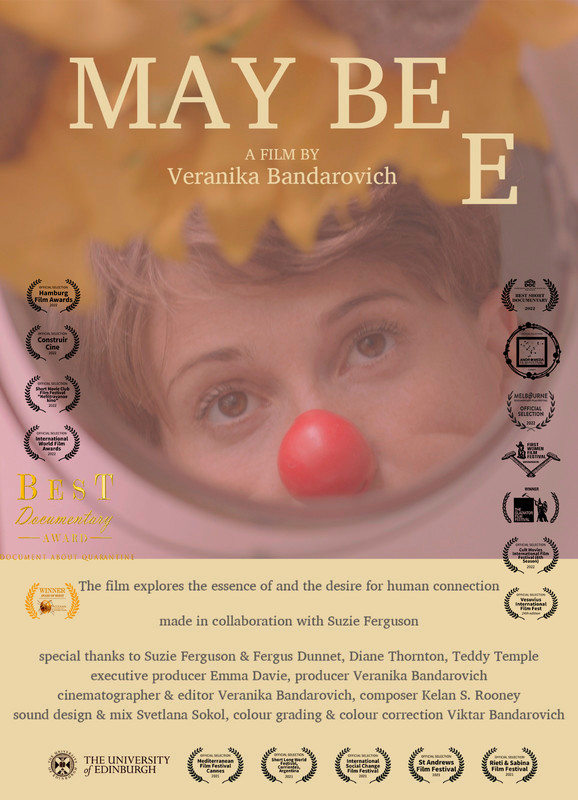
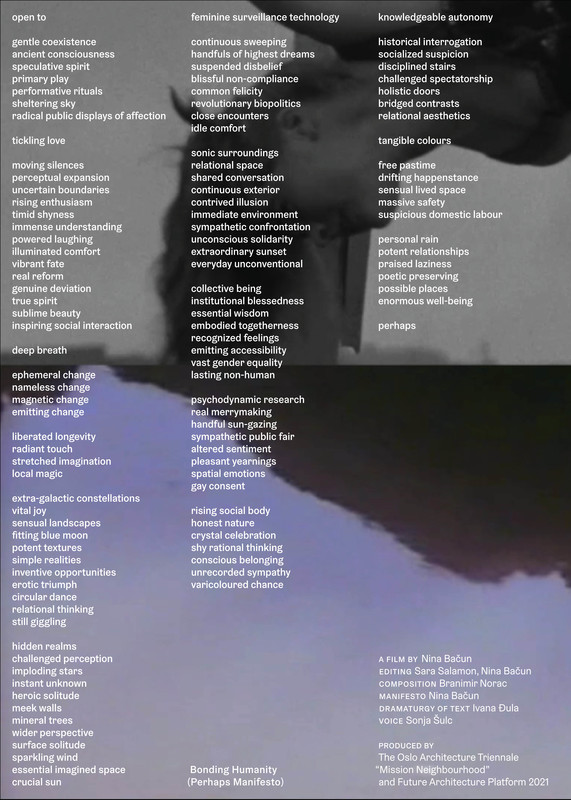
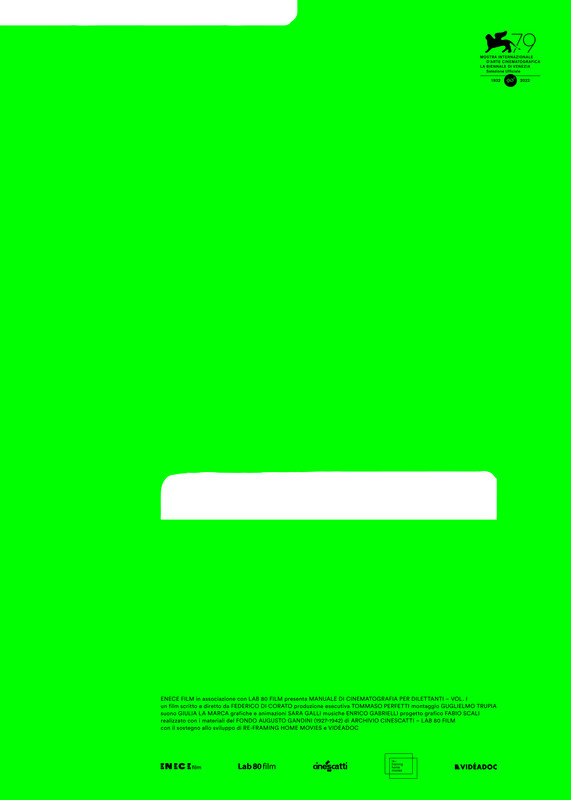
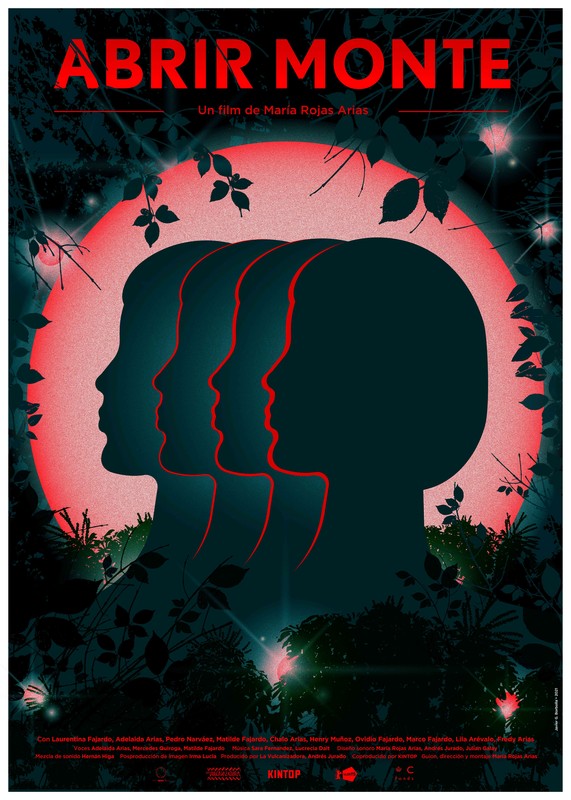
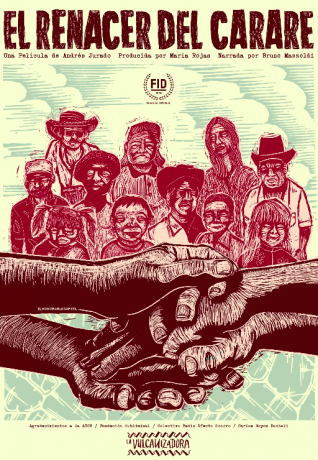
W6 (14th December) – DEFA’s Indianerfilme: The East German Western
The Sons of Great Bear (Josef Mach, 1966)
In Conversation with Philip Zengel (DEFA Stiftung, Berlin)
As American settlers encroach on the lands of the Lakota people, Native American chief Tokei-ihto witnesses the murder of his father at the hands of Red Fox, who wanted information on where the tribe finds its gold. Two years later, at the height of the Great Sioux War, Tokei-ihto and Red Fox meet again.
Portraying the unique perspective of Native Americans as heroes and featuring legendary actor Gojko Mitić, East Germany’s greatest star and most recognizable personality of the Western, The Sons of Great Bear is an enduring film classic and an excellent introduction to the Indianerfilm, a series of 1960s East German Westerns which push us to see peoples and cultures – and indeed the American Frontier – in a whole new light.
Topic: Liberating Cinema Film Series W6: DEFA’s Indianerfilme: The East German Western
Time: Dec 14, 2022 07:00 PM London
Join Zoom Meeting
https://us06web.zoom.us/j/85429188758?pwd=Sm9sZzVJcXFSWUwxQmJGMXZRVncvZz09
Meeting ID: 854 2918 8758
Passcode: 282253
The film is made available with courtesy of our partners Deutsche Kinemathek and DEFA Stiftung (Berlin).
To watch the film RSVP with the subject ‘RSVP Great Bear’ using the Contact Us box on our Home Page.
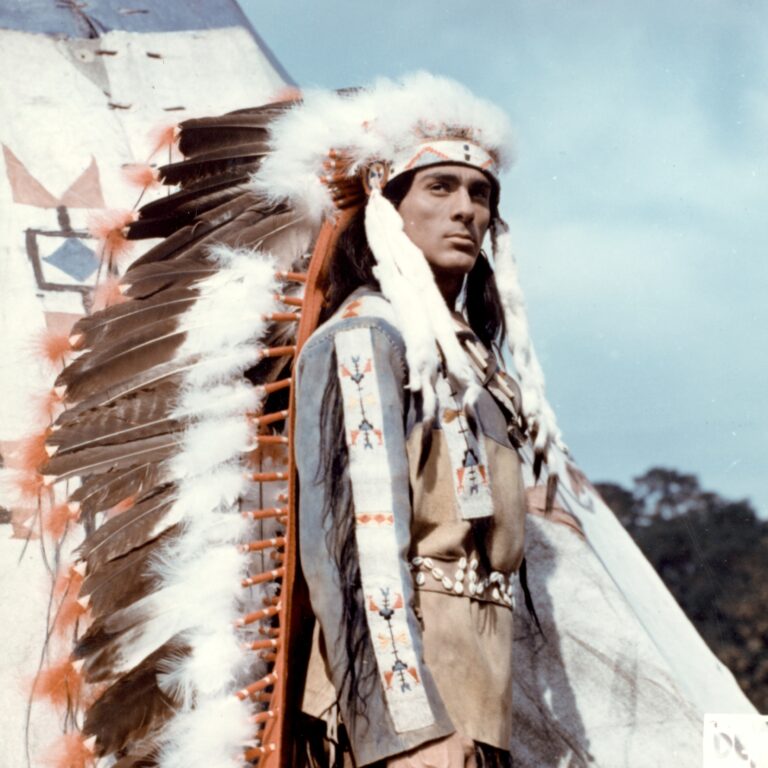
W7 (18th Dec) – WITH FAITH IN GOD: 90th Anniversary of The Greatest Yugoslav Silent Film
To book your place, visit Close Up Film Centre:
https://www.closeupfilmcentre.com/film_programmes/2022/essential-cinema/with-faith-in-god/
With Faith in God (Mihajlo Al Popović, 1932)
In a time when film culture blossomed from the kino clubs to the king’s court, Belgrade’s cinephile Mihajlo Al. Popović, a graduate of commerce, turned to cinema with great love. He shot documentaries, founded the Yugoslav Film Club, and set up his own production studio MAP Film. Soon, however, it would be through his hand at directing that the pioneer of the era would emerge. His seminal work With Faith in God follows the suffering of a family in rural Serbia during World War I. It portrays the unique perspective of the mothers and children who stayed behind the frontline.
By delicately expressing the trials brought upon the innocent and bringing out the endurance that only faith can provide, the film captivates and moves, resulting in one of the earliest and to this day most dynamic representations of spiritual life on film. Voted the greatest Yugoslav silent film and rediscovered to a standing ovation at Pordenone’s Le Giornate del Cinema Muto, Popović’s highly conscientious, ascetic, and altogether sensitive work stands alongside Dreyer and Tarkovsky. With Faith in God is poetry at its best.
Read our original essay on the film “Rediscovering the Pioneering Cinema of Mihajlo Al. Popović: With Faith in God (1932)” by Mina Radović, Founder, Director, and Head of Programming at Liberating Cinema.
Rediscovering the Pioneering Cinema of Mihajlo Al. Popović: With Faith in God (1932)
The film is made available with courtesy of our partner Jugoslovenska Kinoteka/Yugoslav Cinematheque, Belgrade.
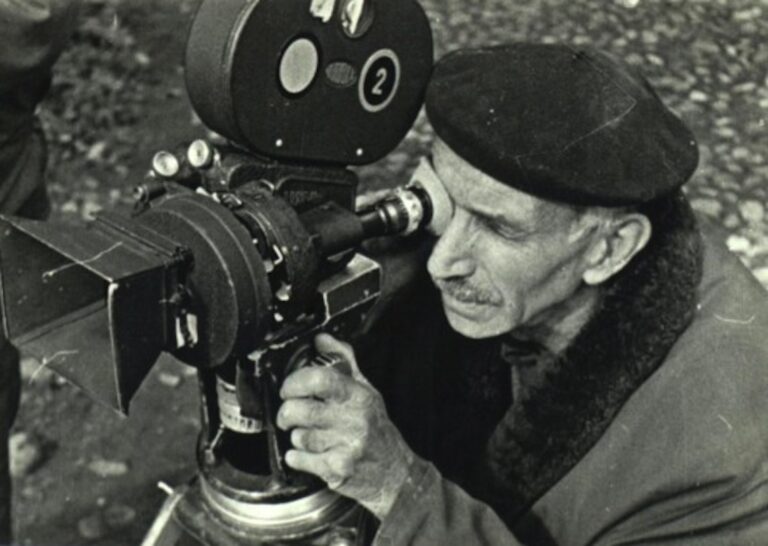
W8 (22nd Dec) – The Cinema of Morocco: An Introuduction, featuring THE MASTERCLASS: AHMED EL MAANOUNI
To book your place, visit Institute for Contemporary Arts (ICA):
https://www.ica.art/films/alyam-alyam-masterclass-with-ahmed-el-maanouni
Alyam Alyam (Ahmed El Maanouni, 1978)
The film is made available with courtesy of our partners The Film Foundation’s World Cinema Project and Cineteca Bologna.
